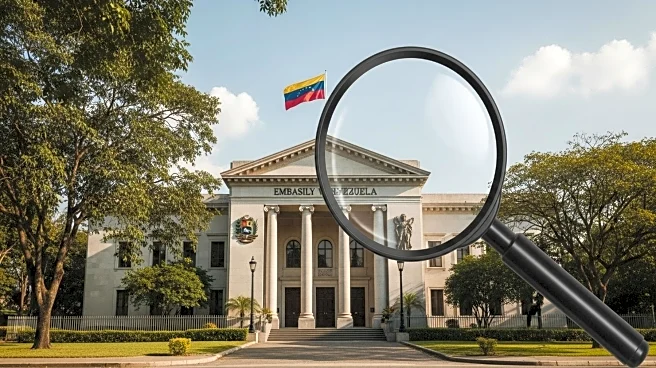What's Happening?
The U.S. government is under scrutiny for spending approximately $6.7 million annually on the maintenance of the closed American embassy and other diplomatic properties in Caracas, Venezuela. This expenditure continues despite the cessation of diplomatic relations with President Nicolás Maduro's government in 2019. A report from the State Department’s Office of Inspector General highlights the lack of a cost-benefit analysis to justify these expenses. The embassy compound, which spans 27 acres, along with five residences, remains operational with a staff of 150 Venezuelans employed by the State Department. The report also notes unauthorized renovations and questions the necessity of maintaining these properties without American diplomats present.
Why It's Important?
The financial implications of maintaining the shuttered embassy raise concerns about the effective use of taxpayer money, especially given the strained relations between the U.S. and Venezuela. The situation underscores the complexities of U.S. foreign policy in regions with adversarial governments. The continued expenditure without a clear diplomatic presence or strategy may affect public perception of government spending and accountability. Additionally, the presence of local staff in Venezuela suggests ongoing, albeit limited, diplomatic engagement, which could be crucial if relations are restored in the future.
What's Next?
The report recommends several measures to ensure compliance with State Department policies, including a review of staffing levels and management of diplomatic properties. The State Department may need to reassess its strategy in Venezuela, potentially reducing costs or finding alternative ways to maintain diplomatic ties. The findings could prompt discussions on the broader implications of U.S. diplomatic strategies in hostile regions and the need for transparent financial oversight.











